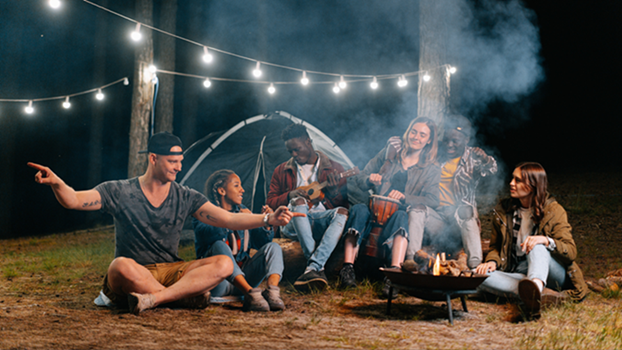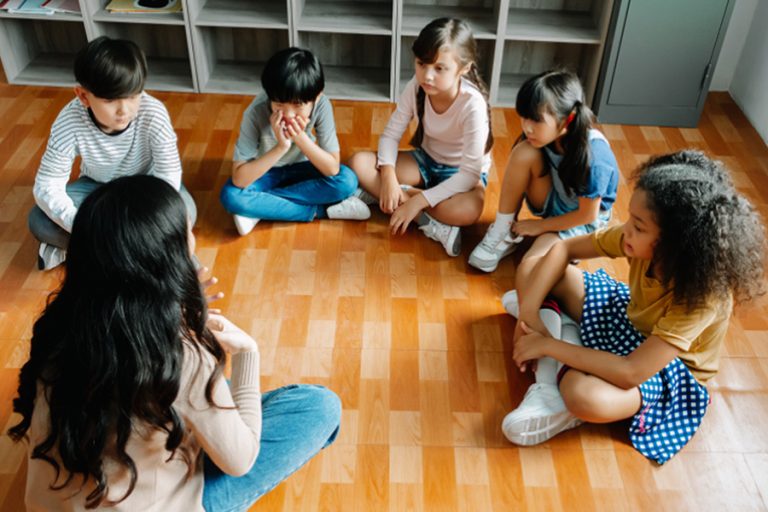
Networking isn’t about “working the room.” It’s about building real, helpful relationships that make your creative life easier and more inspired. If you’re a teen or young creator stepping into rehearsals, studios, open mics, or a Summer music camp, here’s a practical, no-cringe playbook to connect with teachers, mentors, and peers in ways that actually stick.
1) Lead With Curiosity, Not Credentials
The fastest way to stand out is to ask better questions. Instead of “How do I make it?”, try:
- “What mistake did you stop making that leveled you up?”
- “If you had to practice one thing for 20 minutes a day, what would it be?”
Curiosity signals that you’re here to learn, not to pitch. People remember that.
2) Prep a Mini-Intro You Can Tailor
Think of it as a 10-second liner note: name, role, and a specific interest.
- “I’m Jay, I write pop hooks and love sound design—trying to get better at vocal production.”
Swap the last part based on who you’re speaking to (teacher, producer, drummer). You’re not bragging; you’re giving them a hook to respond to.
3) Contribute First, Ask Second
Online groups, class chats, and jam sign-up sheets are networks in disguise. Post a useful link, share a quick chord chart, or offer to comp vocals for a classmate’s demo. When you become the person who helps, asking for feedback or a collab later feels natural—because you’ve already added value.
4) Turn Teachers Into Mentors (Respectfully)
Teachers are busy, but they care. Make it easy for them to help you:
- Ask one focused question after class (“Does my verse scan too wordy at this tempo?”).
- Send a single-page summary when you request feedback (lyrics, tempo, and your specific concern).
- Follow up with what you tried based on their advice.
Mentorship grows when your actions show that their time mattered.
5) Build a “Two-Track” Feedback Habit
Not all feedback is equal. Identify two people: one who pushes craft (precision, technique) and one who pushes vibe (emotion, audience reaction). Before sharing a demo, say what you need: “Craft pass: does the pre-chorus lift?” or “Vibe pass: did anything feel long?” Clear asks yield useful answers and keep relationships stress-free.
6) Join or Start Small Circles
Large events are great, but progress happens in consistent, small groups: weekly writer circles, monthly producer swaps, or practice pods. Keep them structured:
- 60–90 minutes, 3–5 people
- Each brings one piece
- Timer for feedback (two minutes per person)
- Close with one concrete action for the next meeting
Regular cadence builds trust—and trust builds networks.
7) Calendar Your Follow-Ups Like Rehearsals
If you meet someone promising, add a note with where/why you met and a reminder in two weeks. Your message can be simple: “Enjoyed your set at the cafe—looped your chorus idea with a new bassline; want the stem?” Consistent, light-touch follow-up beats sporadic, long messages.
8) Collect Handles, Not Just Numbers
People change phones; their @ rarely changes. Create a private contact doc with names, roles, links (IG, TikTok, SoundCloud, Bandcamp), and one memory trigger (“metal drummer who loves odd time”). When you release something, you’ll know who might genuinely care.
9) Use “Shared Workspaces” to Collaborate Faster
Folders beat DMs for real projects. Set up a shared drive with clear labels:
- “Song_Title/01_Demos”
- “02_Stems/Tempo_Key”
- “03_Mixes/Versioning”
Add a README with BPM, key, and goals. Organized collaborators get invited back.
10) Make Micro-Projects Your Calling Card
Instead of asking a mentor for a long-term collab, propose something tiny: a 30-second bumper, a hook rewrite, a day-one edit of a live take. Tiny wins create momentum—and mentors are more likely to say yes to a 30-minute commitment than a month-long one.
11) Practice Stage-Right Etiquette
In rehearsal rooms and backstage, manners are networking:
- Coil your own cables. Wipe down the stand. Label your gear.
- If someone’s struggling, quietly help without taking over.
Professionalism is contagious; crews remember it when a slot opens.
12) Share Credit Like It’s Free (Because It Is)
Tag collaborators, list writers and players, and link their pages. Public gratitude creates goodwill and encourages people to promote the project too. If your track hits a playlist, mention the whole team—editors love seeing functional creative ecosystems.
13) Capture Moments, Not Just Media
Photos and short clips are social gold—but so are notes. Keep a quick journal after sessions: what worked, who solved what, and what to try next. When you message someone three weeks later with “Your harmony idea in bar 9 fixed my chorus—thank you,” it’s specific and sincere.
14) Know When to Pivot the Ask
If a mentor keeps ghosting on song feedback, try a different angle: “Could you recommend three albums to study for string arrangements?” Experts who don’t have time to mark up your lyric might happily give a reading list. Different door, same house.
15) End on a Bridge, Not a Period
When a session or convo wraps, propose the next tiny step: “I’ll bounce stems tonight; want to trade two mix notes tomorrow?” Bridges turn one-off chats into ongoing collaborations.
Networking is a habit, not an event. Lead with curiosity, contribute early, and keep your projects small, clear, and consistent. Treat people’s time like a gift, thank them specifically, and follow up lightly. Do that, and you won’t just collect contacts—you’ll build a creative circle that keeps you learning, shipping, and stage-ready.





